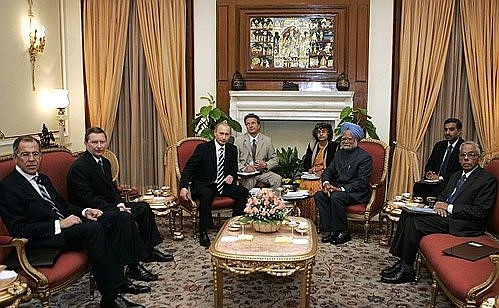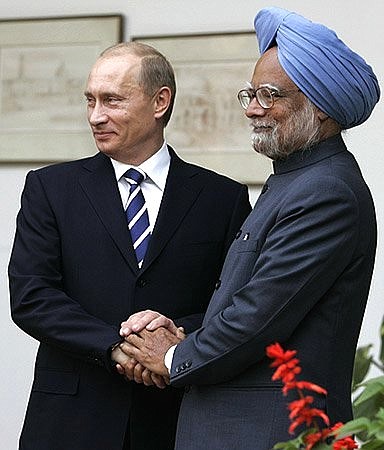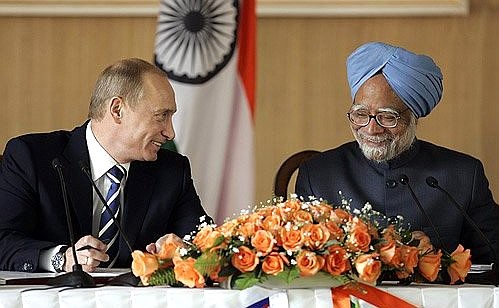After Vladimir Putin and Manmohan Singh had a one-on-one conversation Russian-Indian talks continued in an expanded format.
Following the talks the Russian President and Indian Prime Minister adopted a joint declaration in which they define Russian-Indian relations as a strategic partnership that is not only in both countries’ long-term interests but also supports strengthening stability and security in Asia and the world.
Both parties confirmed their intention to make active efforts to develop and diversify trade and economic cooperation, and emphasised the need to pay special attention to developing bilateral trade and investments, including in energy and high-tech sectors.
The document confirms the parties’ agreement to develop a direct dialogue between the two countries’ oil and gas companies.
The document emphasises that the parties hold close or identical positions on fundamental international problems such as international terrorism, the Iranian nuclear dossier, the worsening situation in Iraq, and finding a Middle Eastern settlement.
The parties also adopted a number of bilateral documents. In particular, both countries’ governments approved a programme for cultural exchanges in 2007–09, as well as a protocol on carrying out the Year of Russia in India in 2008 and the Year of India in Russia in 2009; signed agreements on allowing the Indian party access to navigational signals and to a part of the GLONASS radiofrequency spectrum; an agreement on cooperation in nuclear energy and, in particular, a memorandum on their intention to increase cooperation in constructing additional power units at the Kudankulam atomic power station, and also an agreement on a joint satellite project, YouthSat.
Following the talks Vladimir Putin and Manmohan Singh gave a press conference.


